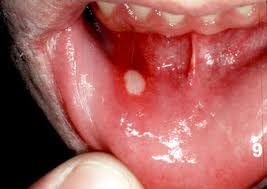Disorders
- Anorexia Nervosa
- Binge Eating Disorder
- Bitot's Spots
- Bulimia Nervosa
- Macrocytic Anemia
- Megaloblastic Anemia
- Night Blindness
- Peptic Ulcer
- Prophylaxis
- Rhodopsin
- Rickets Disease
- Scurvy Disease
- Wilson’s Disease
- Xerophthalmia
- Hemochromatosis
- Siderosis
- Thalassemia
- Sideroblastic Anemia
- Porphyria Cutanea Tarda
- Sickle Cell Anemia
- Kwashiorkor
- Menkes Disease
- Neutropenia
- Keratomalacia
- Beriberi
- Pellagra
- Macrocytic
- Megaloblastic
- Pernicious Anemia
- Scurvy
- Rickets
- Osteomalacia
- Abetalipoproteinemia
- Muscular Dystrophy
- Haemolytic Anaemia
- Cholestatic Constipation
- Pretibial Myxedema
- Cretinism Diesease
- Hypothyroidism
- Hypothyroidism
- Feline Hyperthyroidism
- Graves Disease
- Plummer’s Disease
- Thyrotoxicosis
- Acrodermatitis Enteropathica
- Congenital Hypothyroidism
- Hashimoto’s Thyroiditis
- Hyperthyroidism
- Keshan Disease
- Lose Weight with Hypothyroidism
- Metal Fume Fever
- Postpartum Thyroiditis
- Thyroid Storm
- Subclinical Hypothyroidism
Pernicious Anemia - Causes, Symptoms and Treatment

They are instances when an illness or disorder is a result of our body not receiving the correct nutrients it needs to function properly. Without these supplements the body will attack itself and an individual can get sick.
Pernicious Anemia is also referred to as macrocytic achylic anemia, congenital pernicious anemia, and Vitamin B12 deficiency. Pernicious Anemia is a chronic blood disorder that is caused by a lack of Vitamin B12. Individuals with this illness do not produce a protein (intrinsic factor) in the stomach that allows the body to absorb Vitamin B12.
Who can get it?
The disease affects individuals of all races; originally it was thought to only affect whites of Scandinavian or Northern European descent. Slightly more women than men are inflicted with this illness. Pernicious anemia usually does not occur before the age of thirty, and it usually begins between the ages of forty and seventy. Children can also be affected, but only in some rare cases.
What causes it?
The intrinsic factor is a protein that helps the body absorb Vitamin B12. When the stomach secretions do not have the required amount of intrinsic factor, the Vitamin B12 does not absorb well. The body needs Vitamin B12 to function. In some cases, a person may develop Pernicious Anemia as a result of chronic gastritis or if the person has had surgery to remove their stomach. They are also some an instance in which individual inherits Pernicious Anemia.
How does it happen?
When the body does not absorb enough of the Vitamin B12 from the stomach it means that not enough red blood cells are being produced which leads to Pernicious Anemia.
What are the symptoms?
They are many symptoms that are associated with Pernicious Anemia. The cells in an individual’s body need Vitamin B12. Without Vitamin B12 our sensory and motor nerves will be affected, causing long term neurological problems. It can also cause a shortness of breath, fatigue, a rapid heart rate, loss of appetite, diarrhea, tingling and numbness of the feet and hands, sore mouth, tongue problems, bleeding gums, a loss of sense of smell and loss of reflexes. The individual may also experience personality changes, referred to as megaloblastic madness.
How can it be diagnosed?
A doctor can diagnose Pernicious Anemia during a medical exam and doing some blood tests. One specific test that will be conducted is the Schilling test. The Schilling test is performed to detect Vitamin B12 absorption. Other tests will check your white cell count and your platelet count. Also, a serum test will be done to check the level of B12 in your body. If the diagnosis is uncertain a bone marrow examination might have to be conducted.
What treatments are available?
Pernicious Anemia is an illness that happens, but with an early diagnosis and treatment of the B12 deficiency it can be controlled. If this is done early enough it can be corrected. If an individual does not get treatment it can lead to gastric polyps and gastric cancer. If the condition continues it could also lead to neurological problems for the person in the future. Treatment will depend on the overall health of the individual, their tolerance to certain medications, age, and at what point the disease is at. Monthly Vitamin B12 injections are the preferred treatment for Vitamin B12 deficiency. You can also take Vitamin B12 orally. Also, available for some individuals who have problems taking medication, is a Vitamin B12 medication that can be taken intranasal, through the nose. An individual should also have a well-balanced diet that includes items rich in Vitamin B12 and folic acid: orange juice, spinach, liver, rice, barley, green leafy vegetables, peanuts, eggs, meat, poultry, beans, and milk. With early treatment the individual inflicted should see an improvement in their heath.
Pernicious Anemia is a serious illness. The good news is that with proper treatment an individual can recover. The important thing to remember is that treatment involves both the doctor and the individual. The individual will have to maintain a diet that helps to improve the level of B12 in their bodies. Along, with diet and medication, an individual should be able to lead a normal life.
